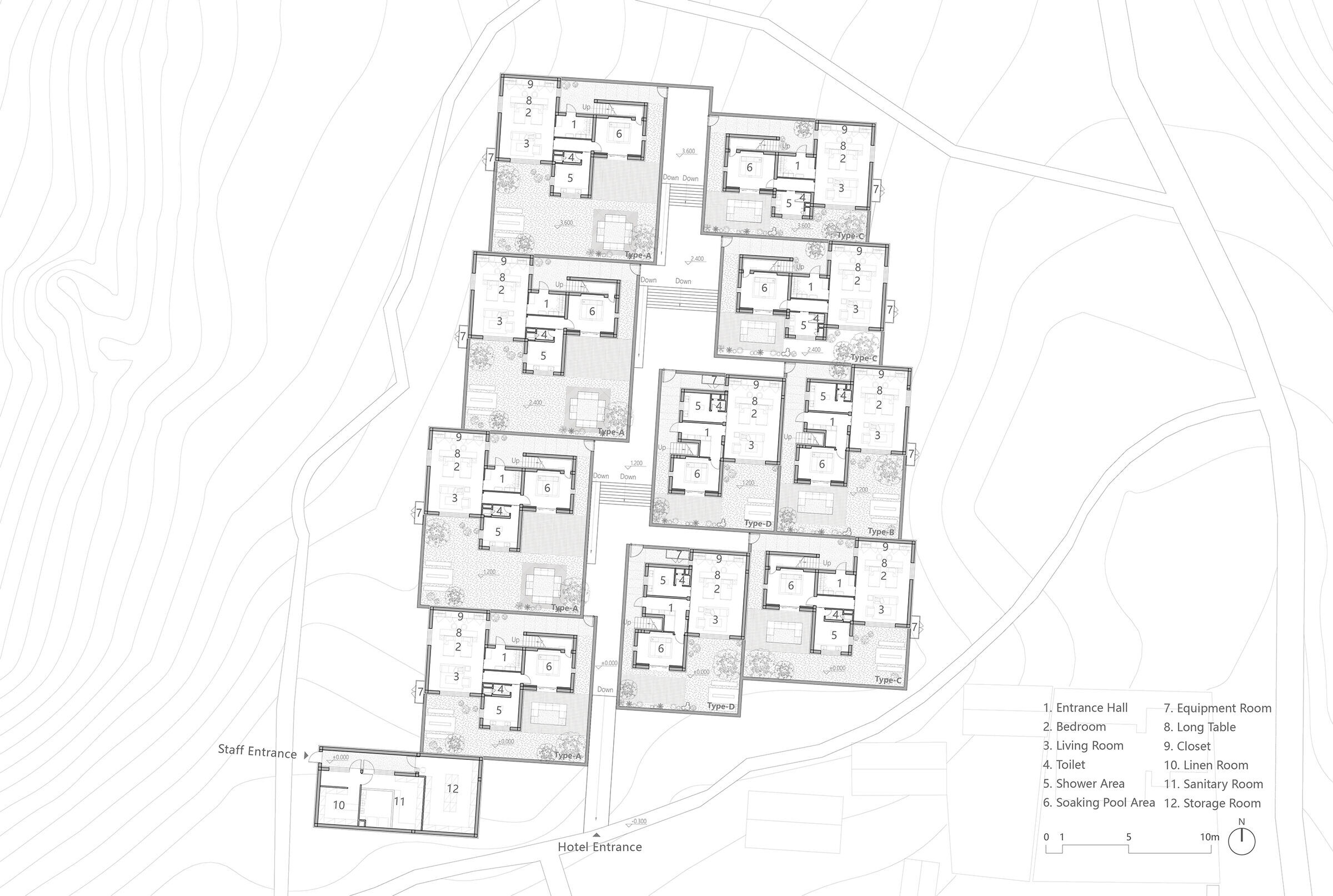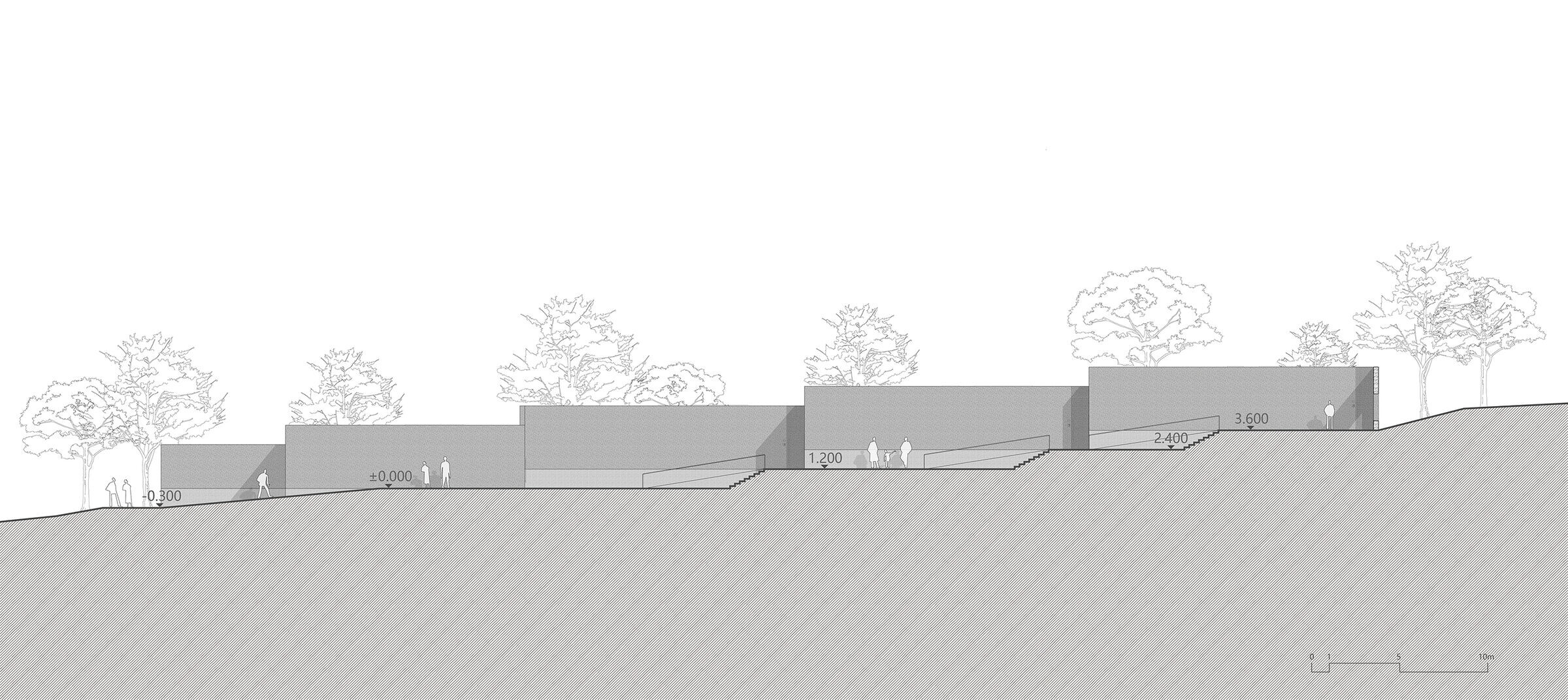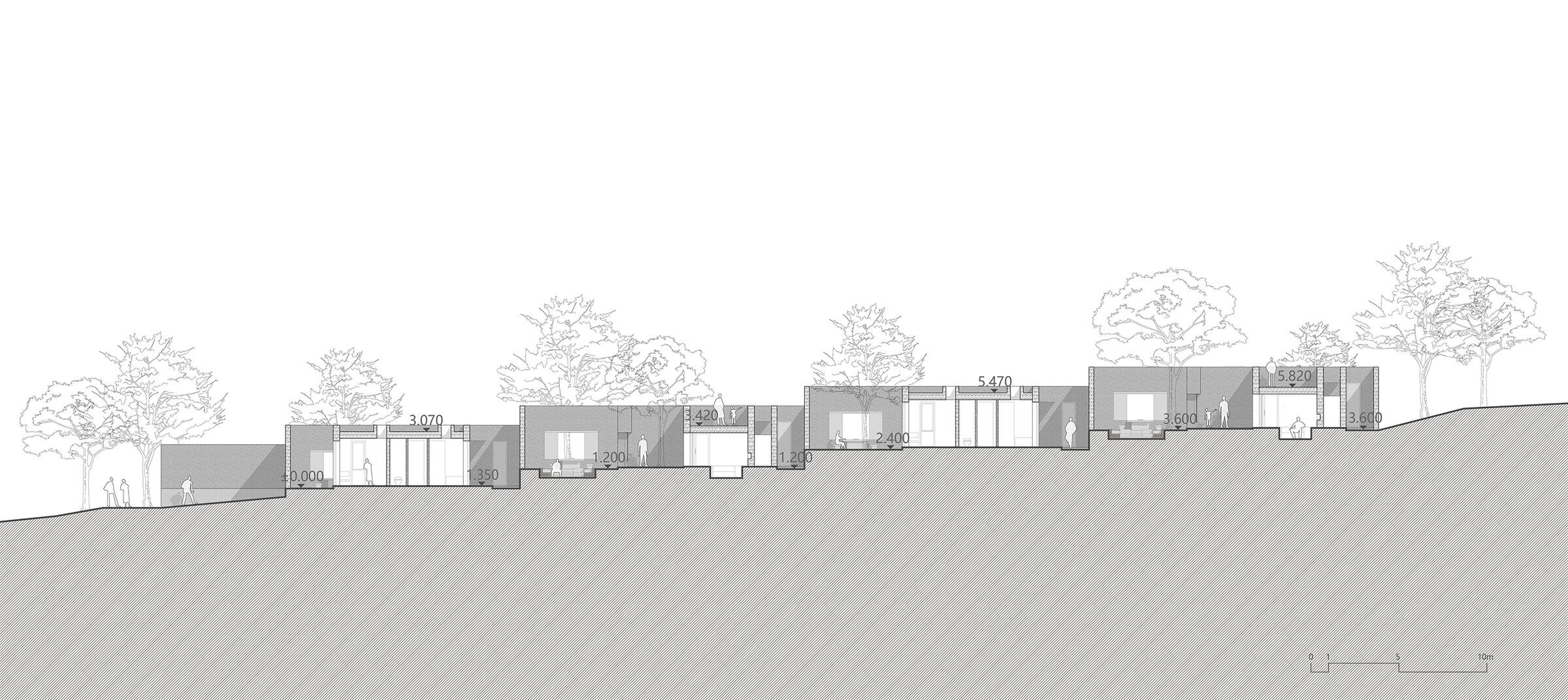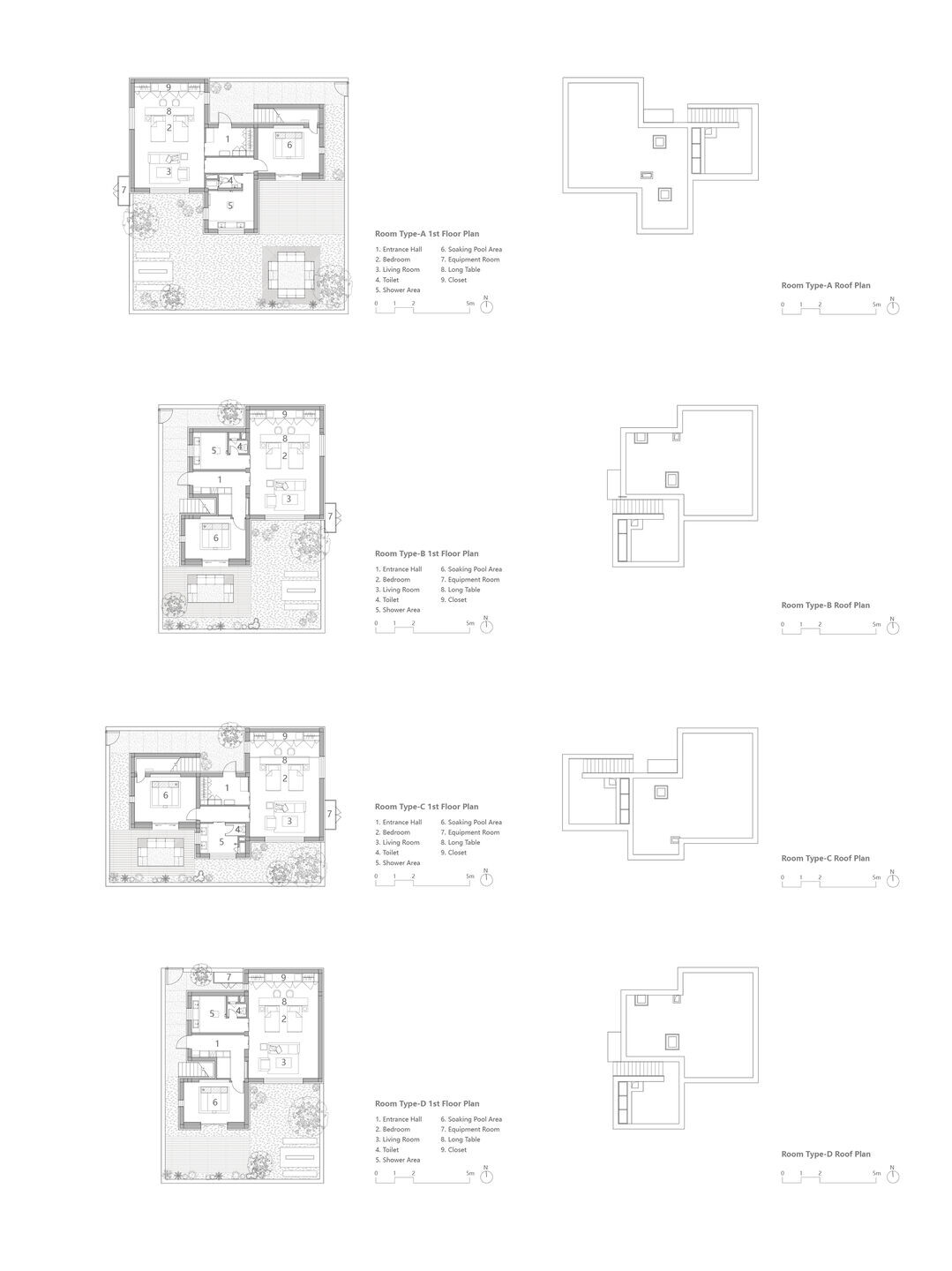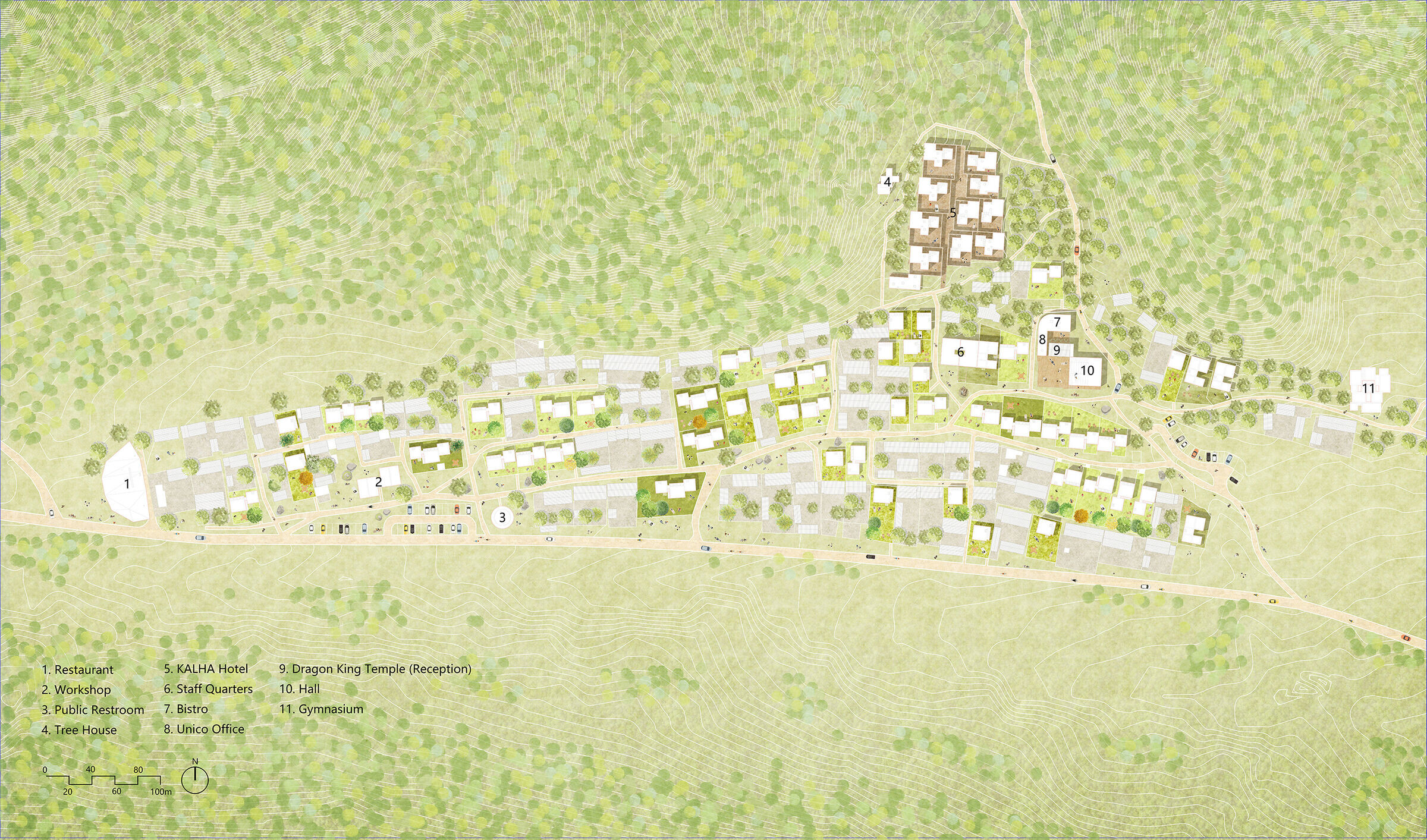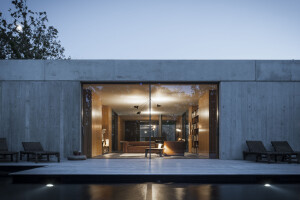Preface
In recent years, a slogan can often be seen on the road out of Beijing: “Spend your weekends in beautiful Hebei”. With the construction of rail transit and highway networks, a number of towns in Hebei have become new destinations offering weekend leisure travel for residents of Beijing, Tianjin and Hebei.

In this context, “Unico” was born. The project is located in Fangjialiang Village, Chicheng County, Zhangjiakou City, Hebei Province, about 35 kilometers from Chongli High Speed Rail Station. After a 3-hour drive from Beijing through a series of tunnels and winding mountain roads, enjoying the beautiful countryside along the way, visitors will reach this quiet village surrounded by farmland and forests.
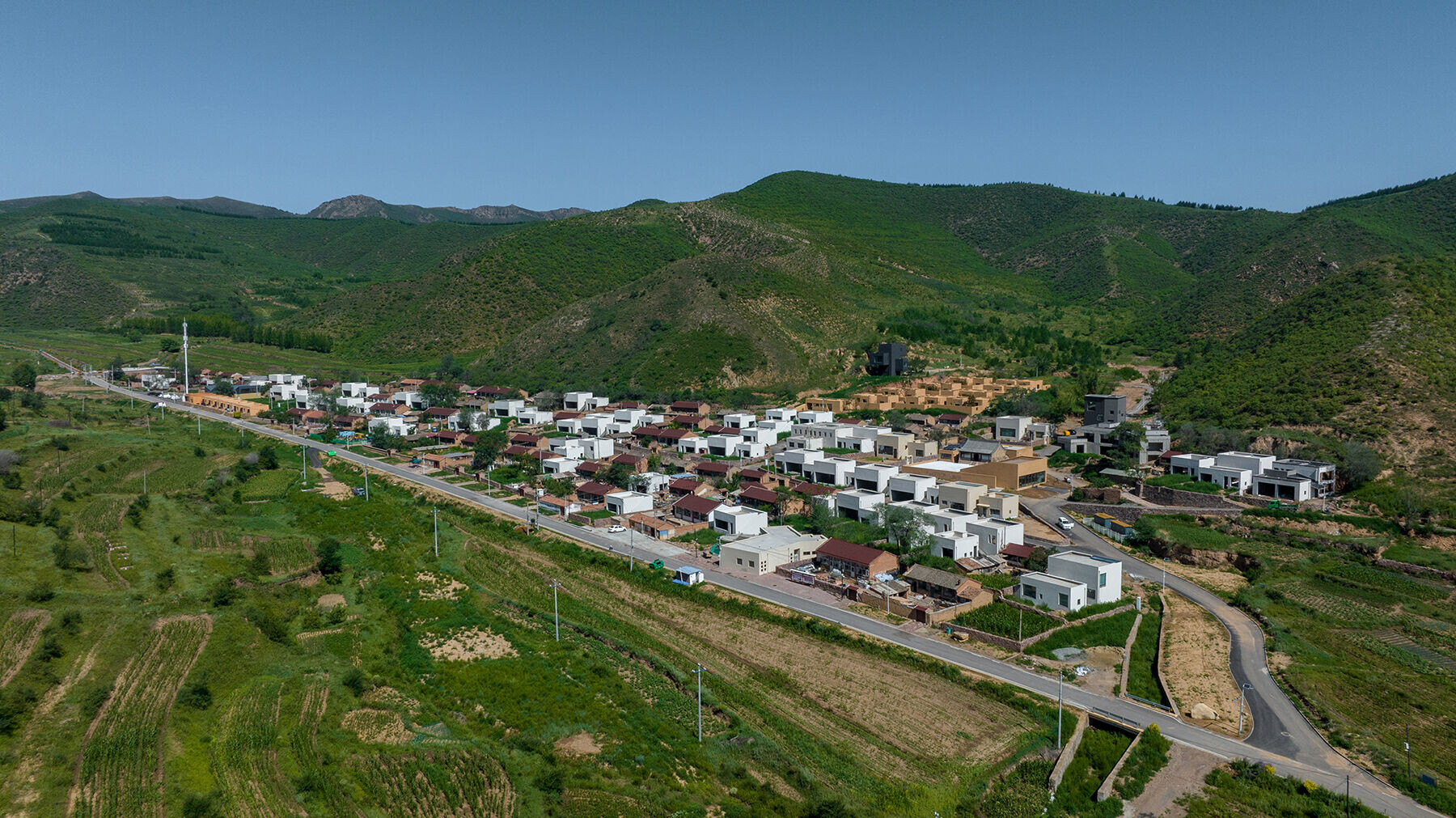
Unico, as a co-development village project, aims to provide a new living possibility for city inhabitants. The first phase of the construction involves more than 60 vacant courtyards, each covering an area ranging from 200 to 400 square meters. 45 of these courtyards will be used for residential purposes and 10 will be served as hotels, with additional supporting facilities such as village hall, Dragon King Temple (reception), workshops, dining, gymnasiums, public restrooms, Unico office and staff quarters.
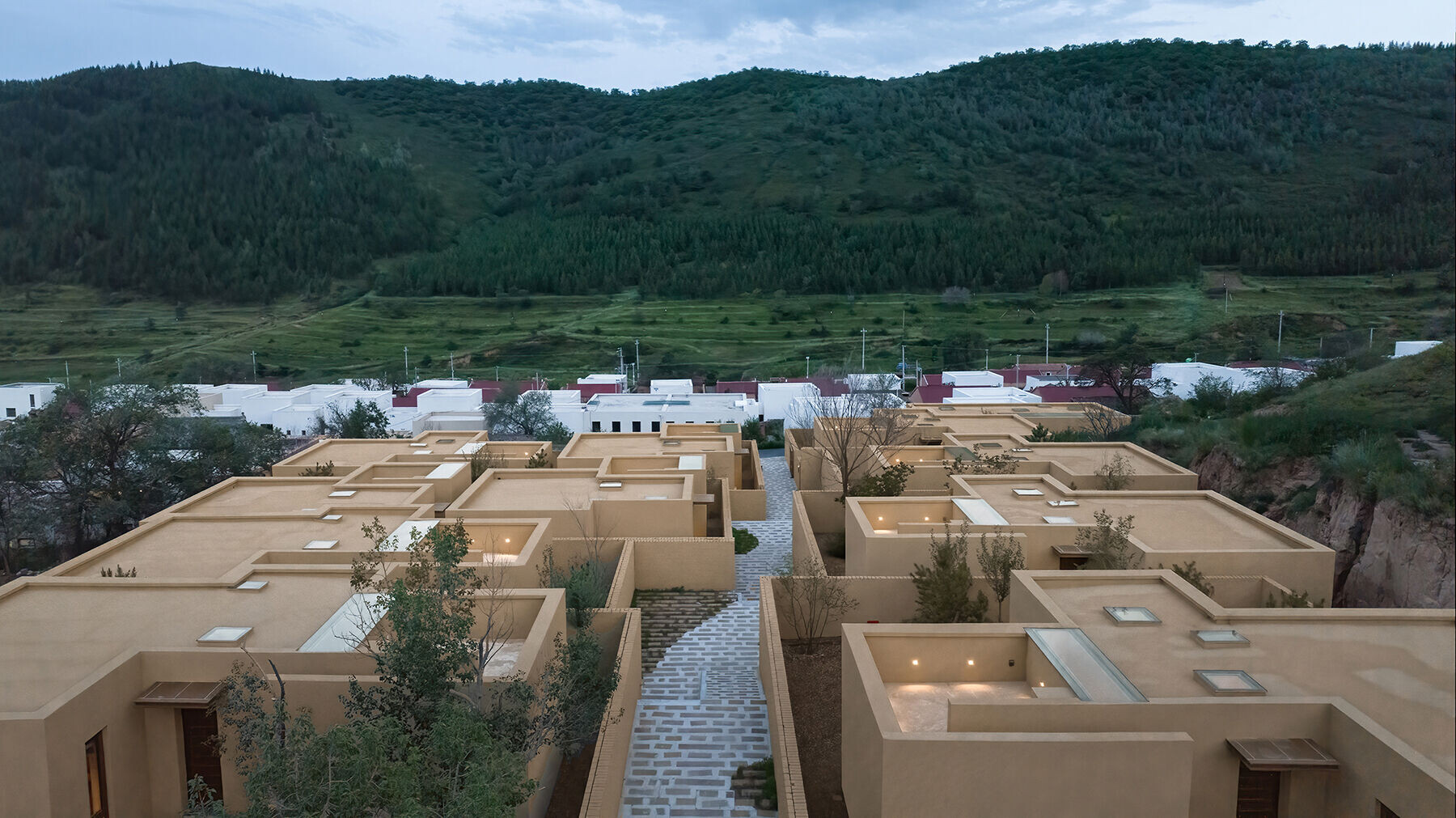
A Slope Settlement Born of the Terroir
Most of the houses in Unico are offered to new villagers who are planning a long-term stay. However, for the purpose of building a well-connected village community and give more urbanites a chance to discover Unico, the village has also planned a living space for visitors to stay for a short period of time, namely the KALHA Hotel.
The front part of the name “KALHA” is derived from “KALGAN”, which means “border” in Mongolian, is the old English-speaking world's name for Zhangjiakou, and “HA” is the Mongolian word for “wall”, symbolizing solidity and protection. The combination of the two words conveys the hotel owners' respects for this ancient land and their hopes about the future of the KALHA.
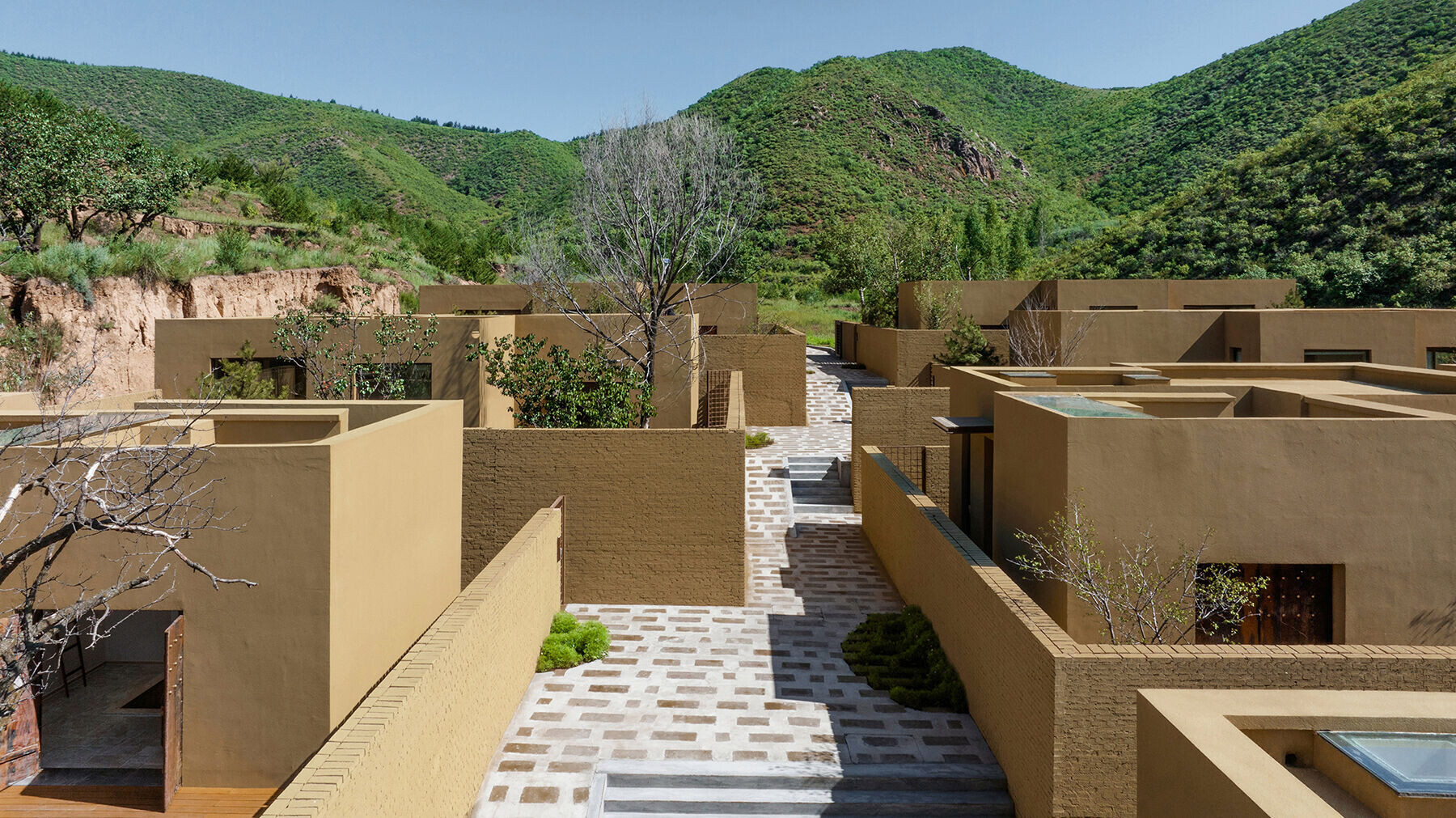
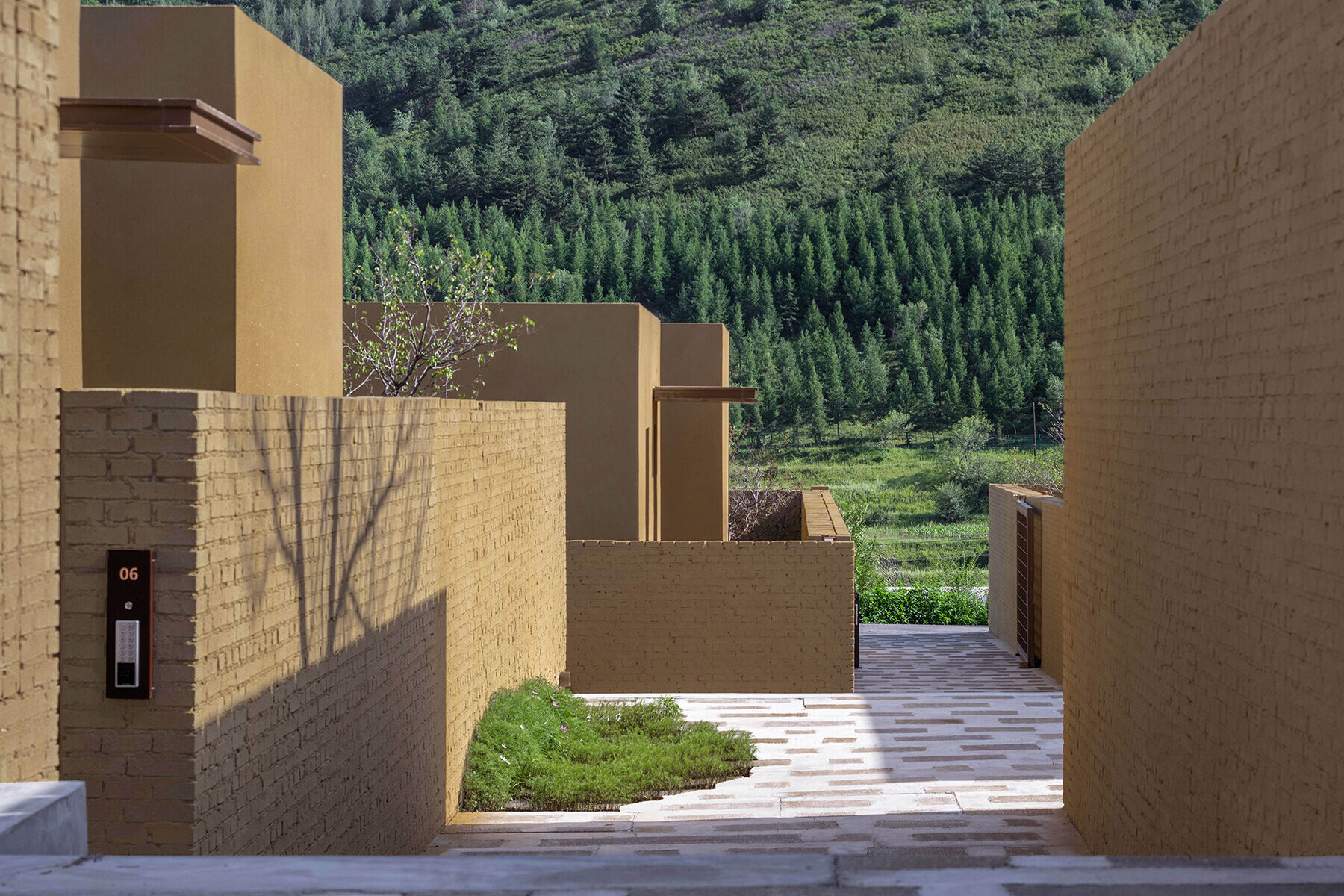
Different from the independent houses scattered in the village, KALHA Hotel is a continuous spatial system surrounded by walls. The hotel follows the terrain rising from the south to the north and extending horizontally on the slope to the north of the village. The panoramic view towards the east and south opens up to the village and the mountains.
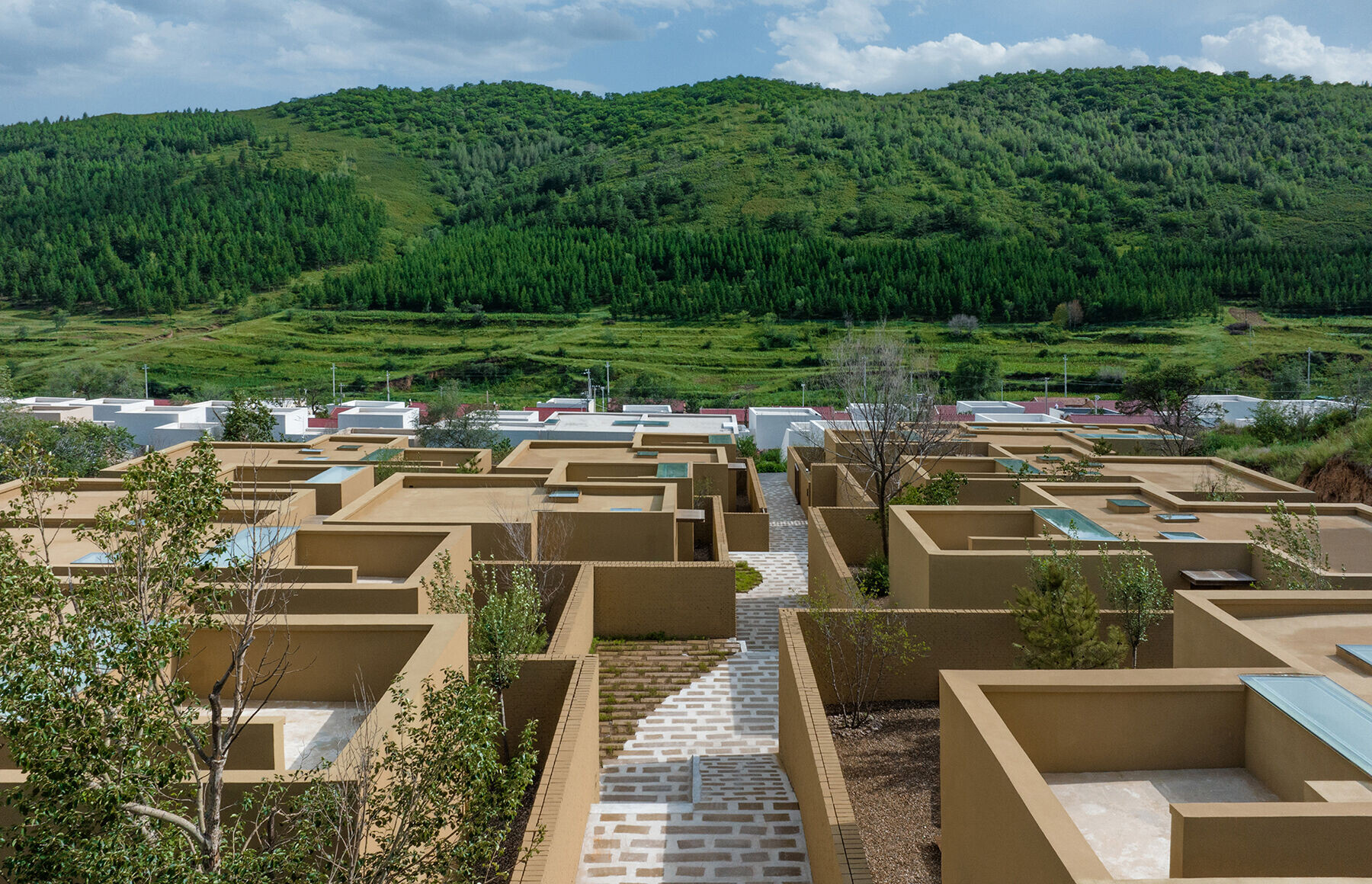
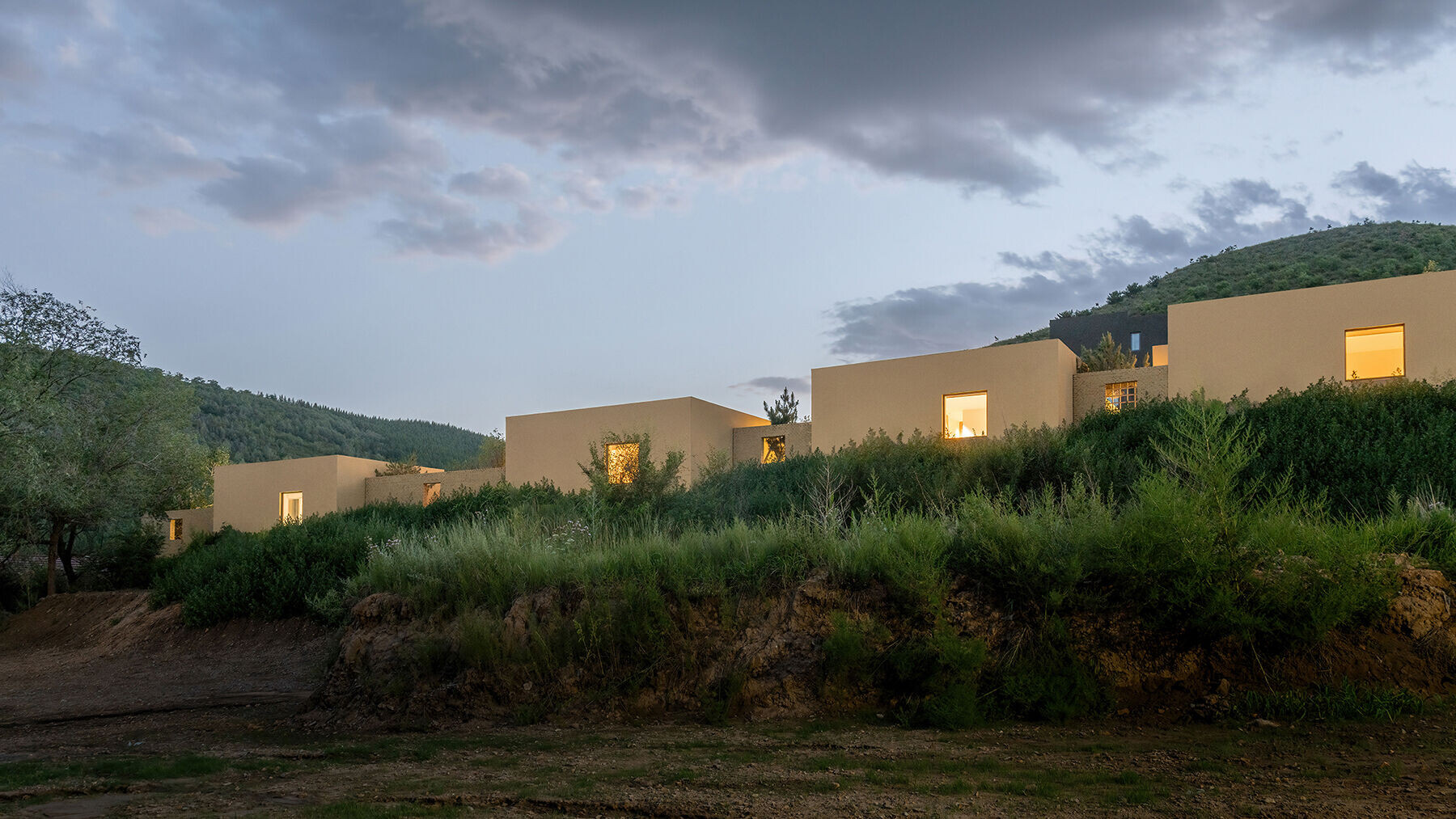
The overall construction does not have a clear central axis, and the irregular layout keeps the characteristic of the spontaneous growth of the village. Inheriting the original landscape of the mountain village, the 10 guest rooms units have 4 different elevations according to the height difference of the site. Each unit is formed without destroying residential red lines, so its size and internal space are not standardized.
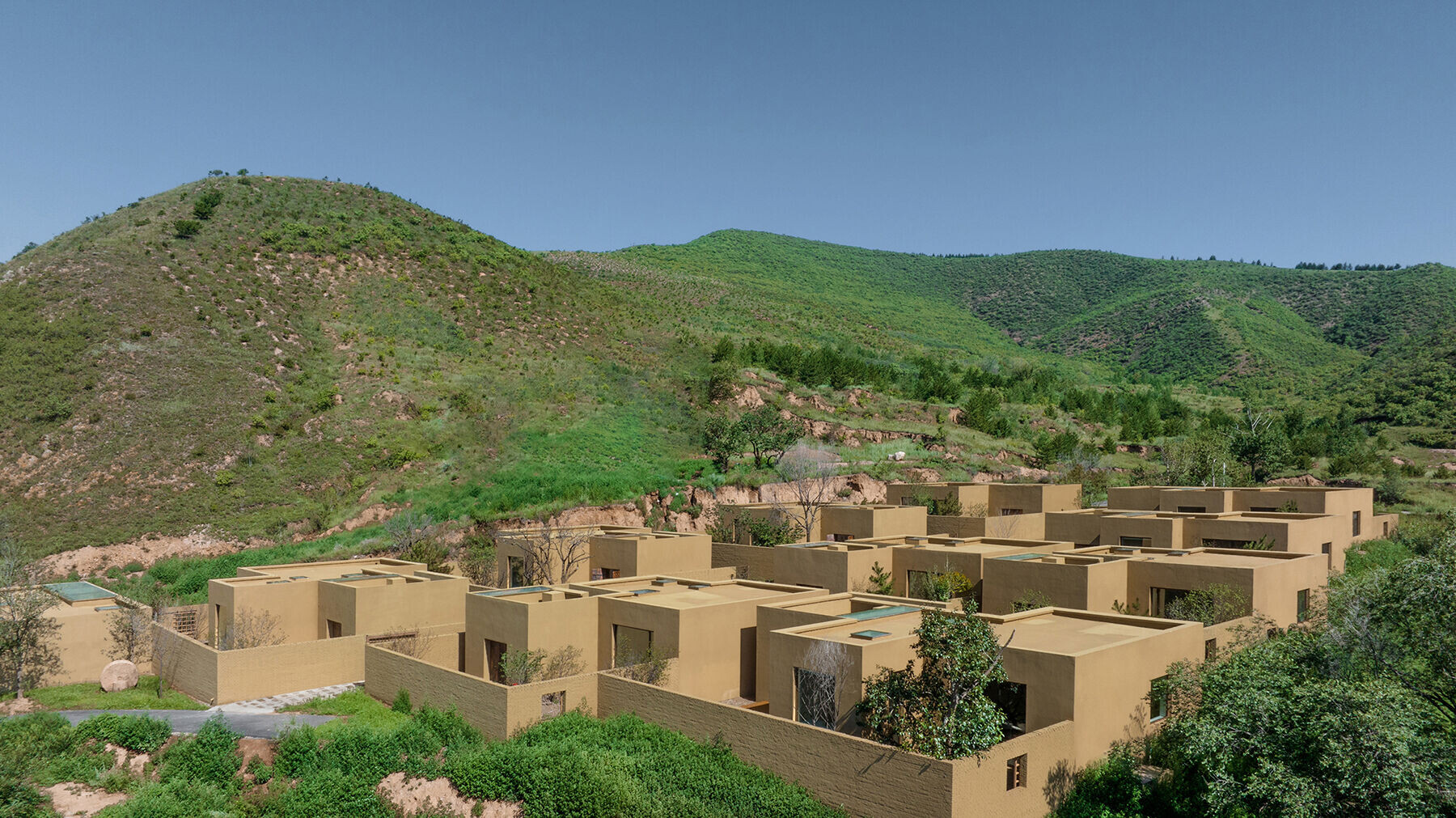
KALHA Hotel appears to have no main facade from any direction, but rather a free and random form. The individual guest room units are grouped together like a small but diverse settlement. The settlement is enclosed by a series of walls and becomes a complete building again. The zigzag courtyard wall fits into the landscape, allowing the hotel to integrate organically with the old village.
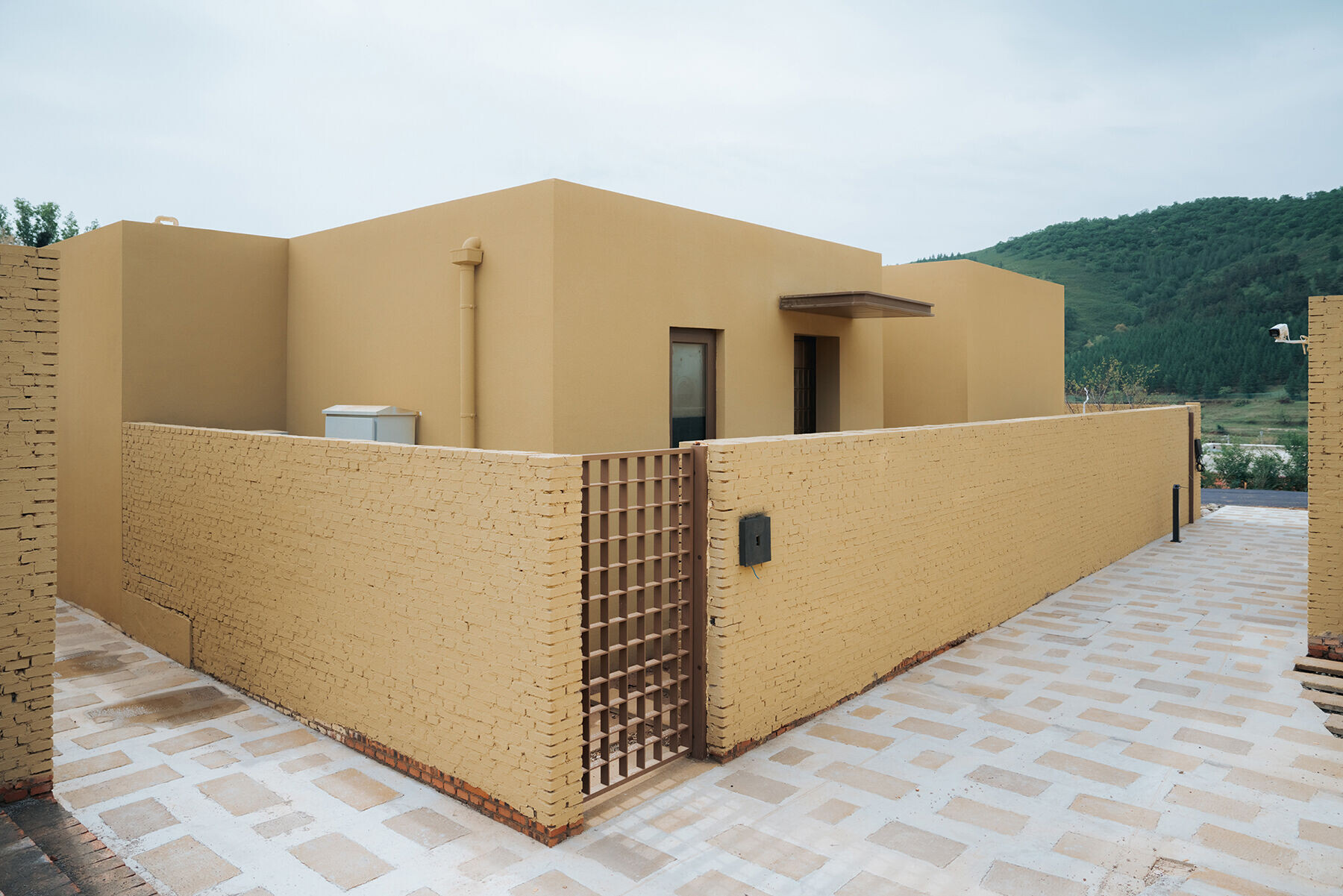

The external walls not only contribute to the efficiency of management and service, but also give the hotel an essential visual identity. Both the courtyard walls and the guest room facades have been painted in a color close to the soil of the site, resembling geometric sculptures growing naturally out of the earth from a distance.
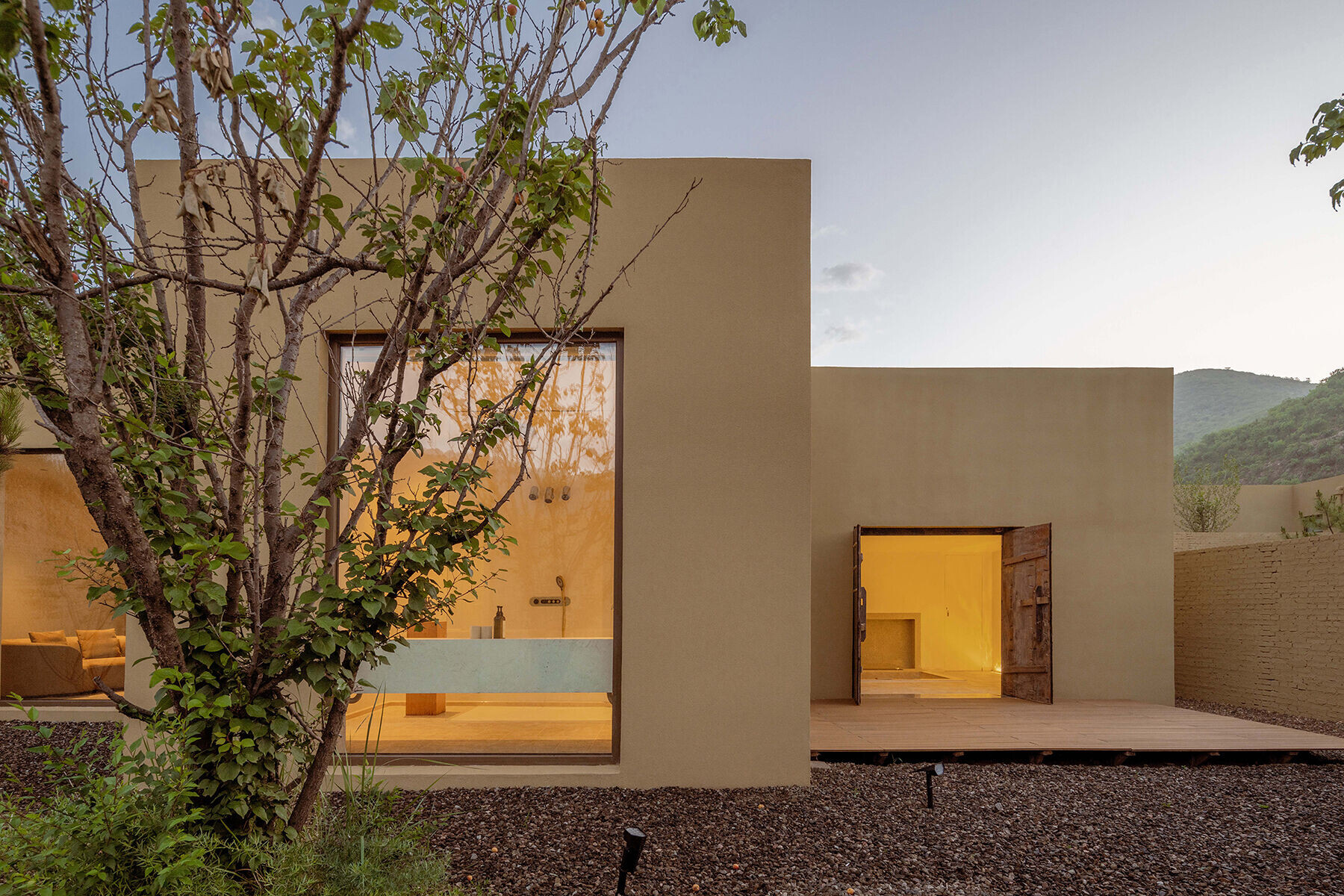
At the same time, there are rich spatial experiences within the walls and between the courtyards. The former village paths have been transformed into public streets inside the hotel, with pure walls and open spatial scales that can accommodate public events such as exhibitions, lectures and even small performances. In the future, this area will turn out to be the most dynamic place of the hotel.
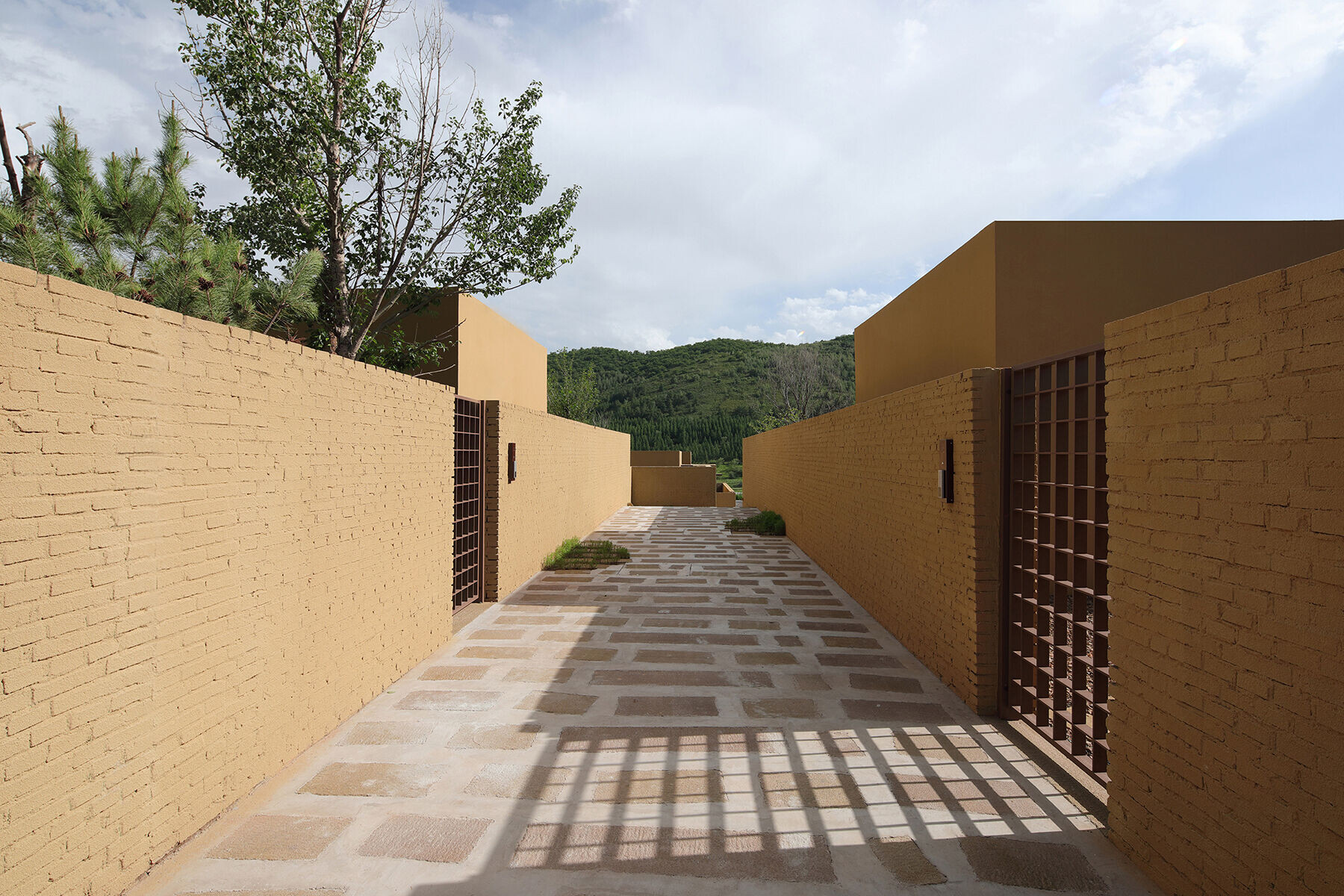
Each guest room has a relatively independent, inward-looking courtyard, which largely protects the privacy of the guests. The view from the room is full of plants in the courtyard and distant mountain scenery. In order to create more contact with nature, the architects have installed self-opening holes in the courtyard wall. There is also a staircase that leads to the roof, where, in good weather, guests can relax on the terrace and enjoy the stunning view of Unico
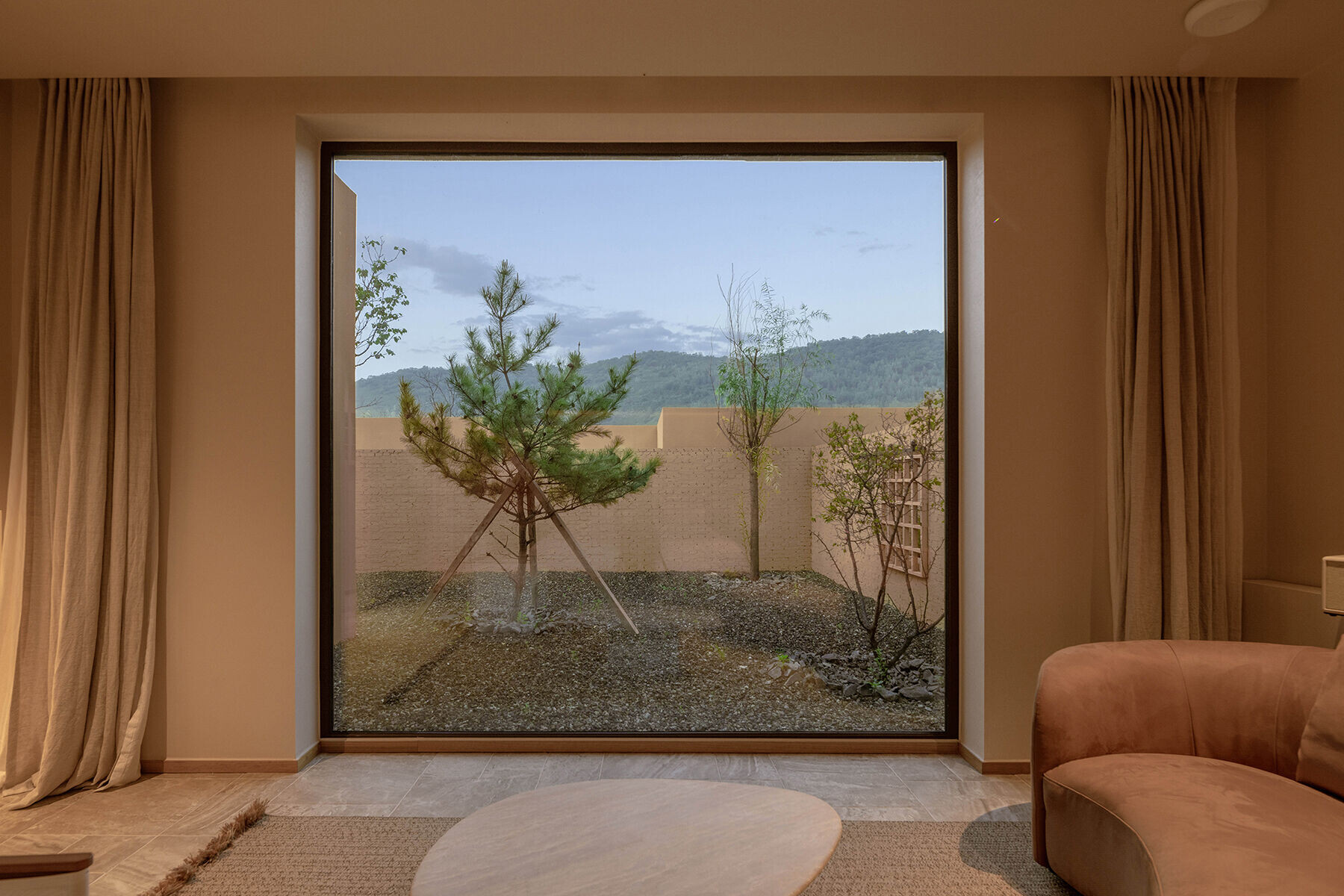
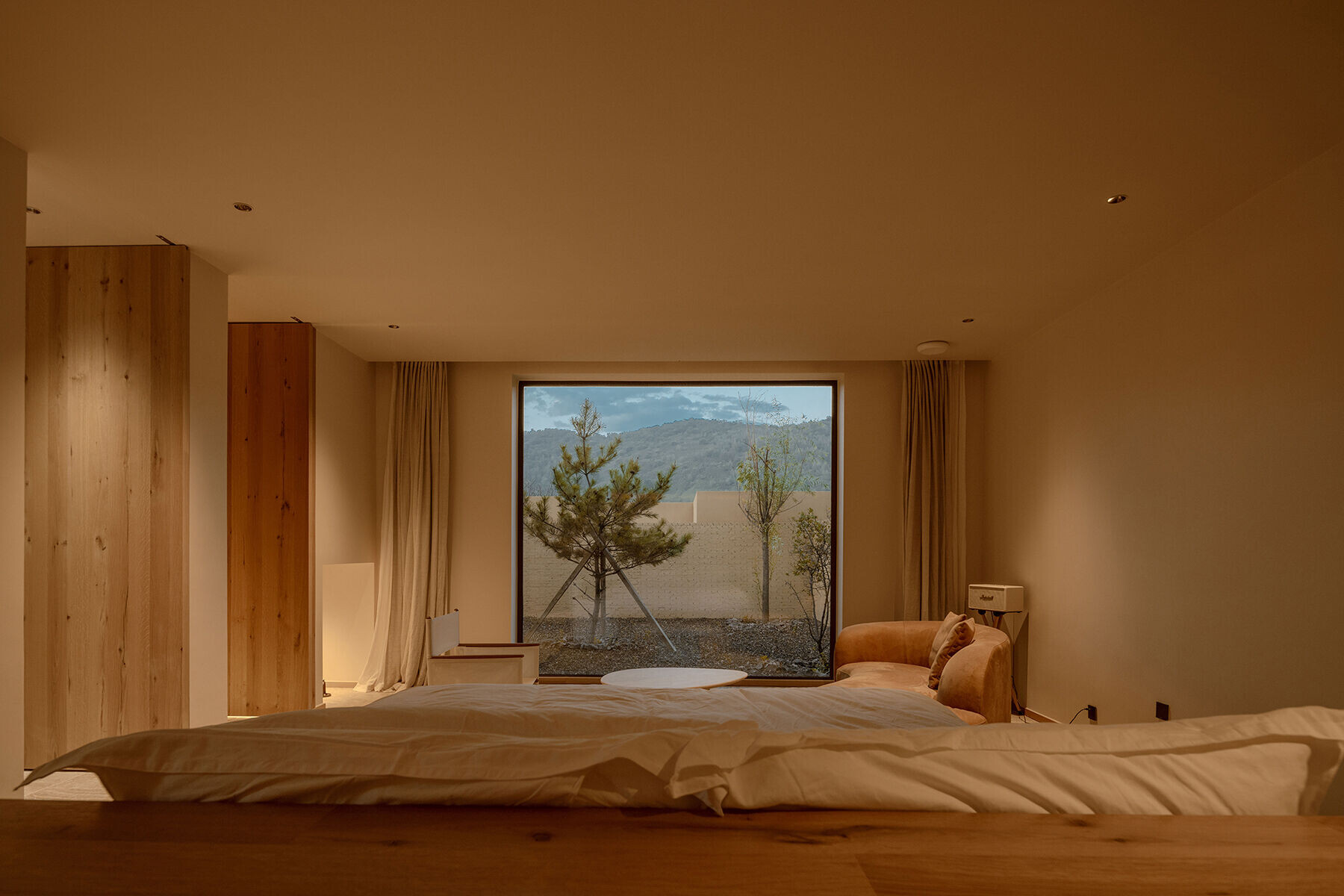
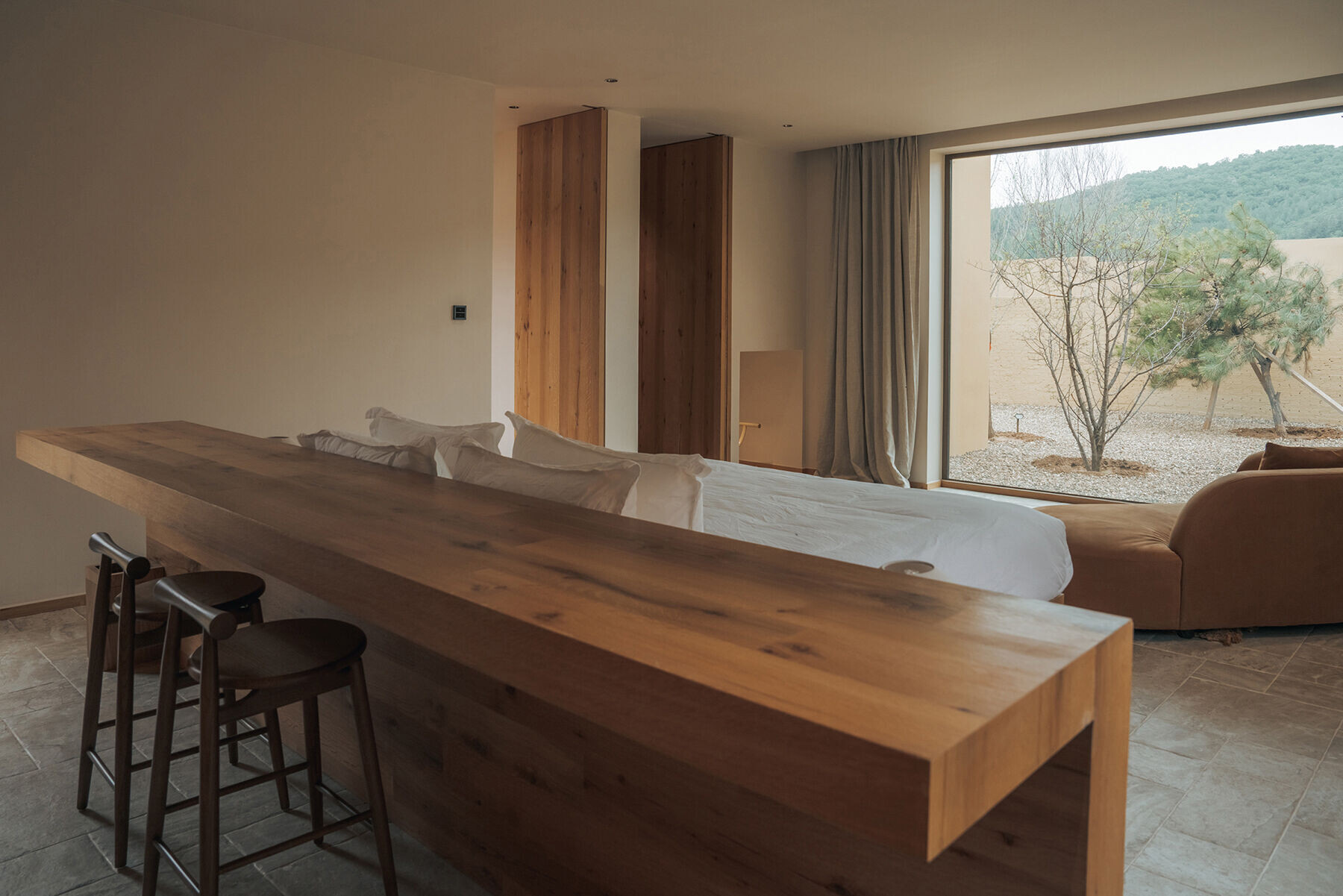
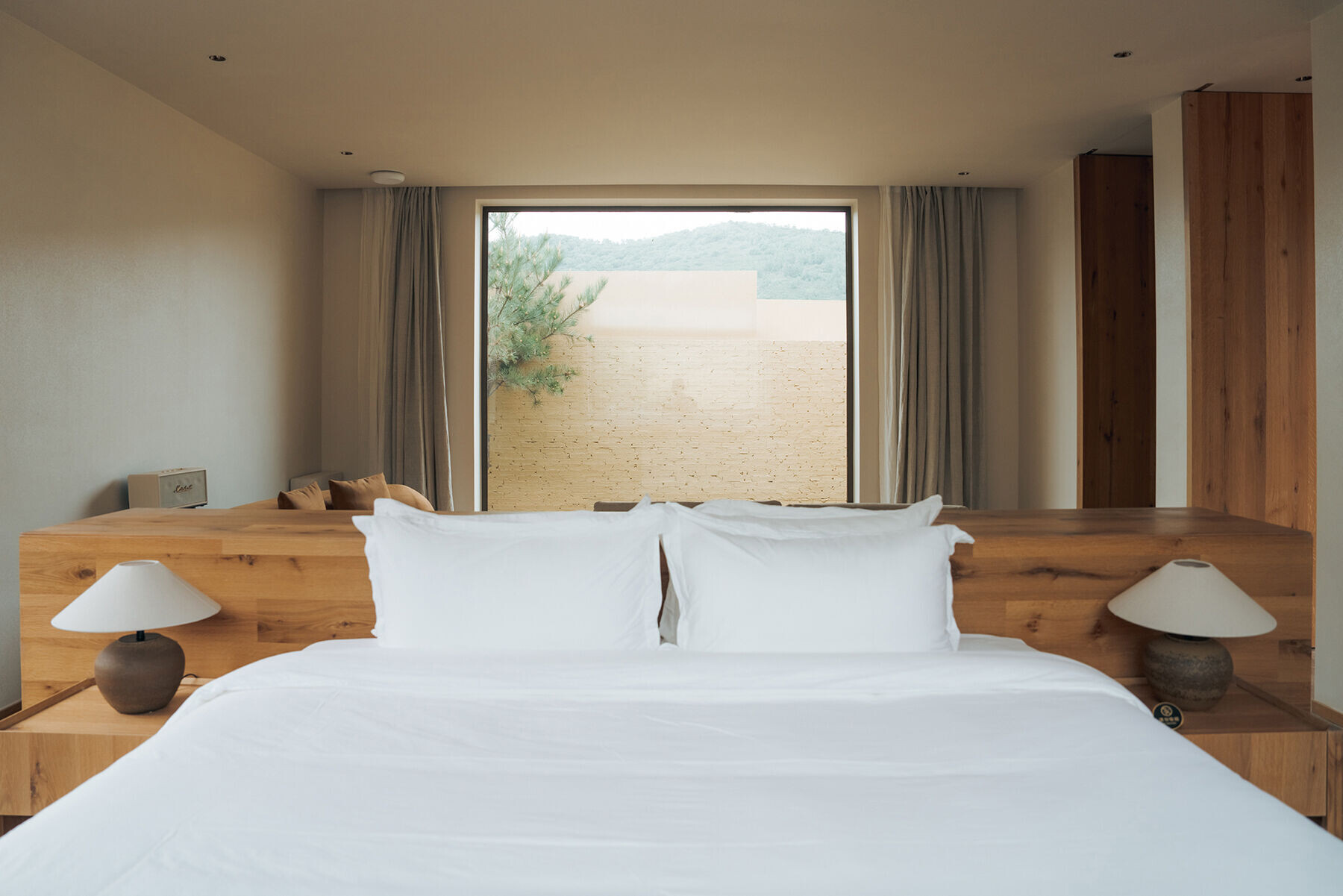

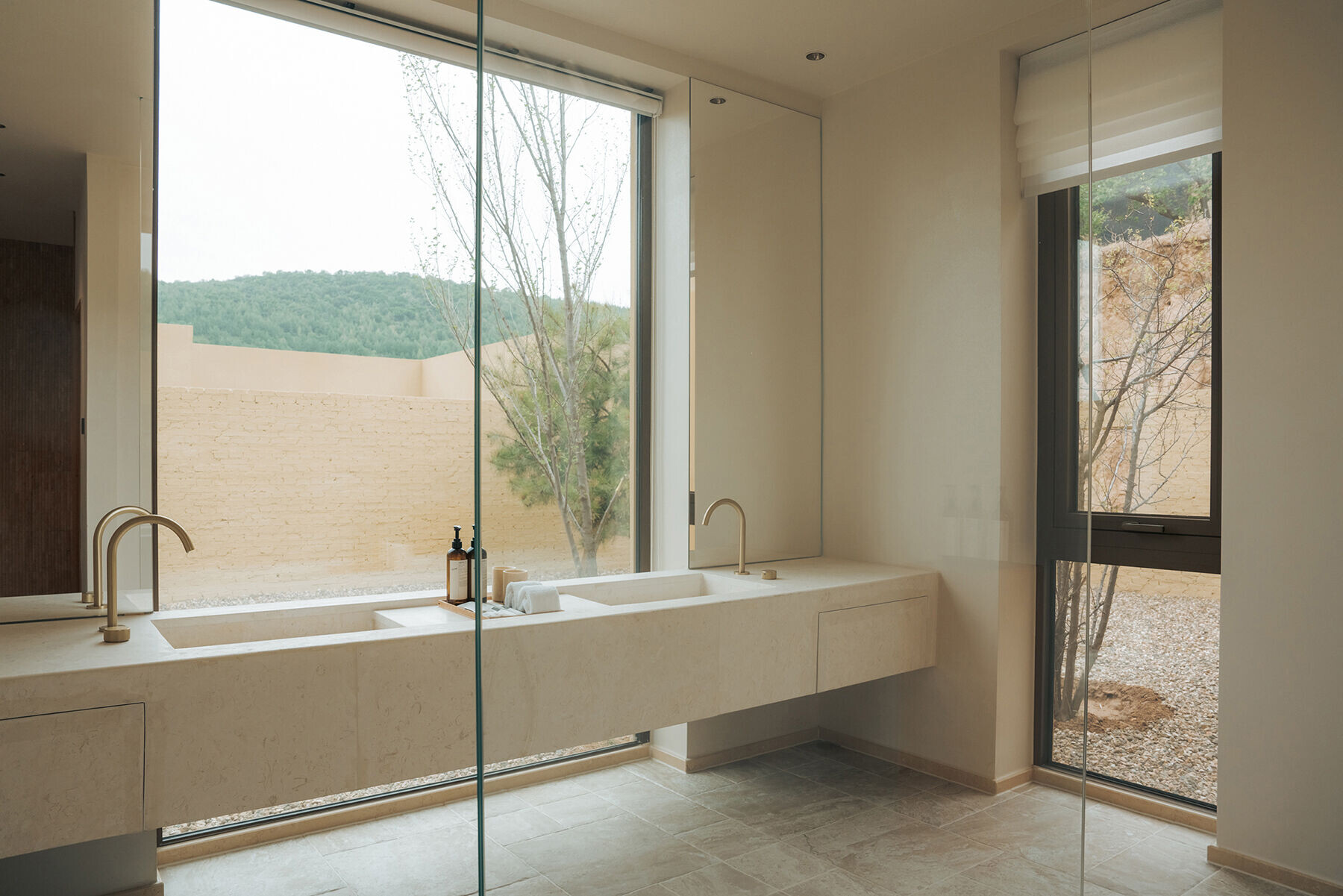
Project Details
Design Firm: CPLUS
Founding Partners: Cheng Yanchun, Li Nan
Architect in Charge: Cheng Yanchun
Design Team: Bo Chen, Chen Yi Wei, Guo Feng
Program: Hospitality
Status: Built
Dates: March 2022-May 2024
Location: Zhangjiakou, China
Area: 1190 sq.m.
Photographs: Liu Jing, Captain, CPLUS
